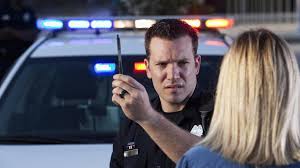
Facing a DUI charge in Orange County can be an overwhelming and daunting experience, particularly when it involves allegations of cocaine use. With the complexities surrounding Vehicle Code 23152(f), which concerns driving under the influence of drugs, and Health & Safety Code 11350, which addresses the possession of cocaine, defendants must navigate a challenging legal landscape. Understanding the nuances of these codes and enlisting the support of an experienced Orange County DUI lawyer can significantly impact the outcome of your case. This article will delve into the legal intricacies of fighting a cocaine DUI in Orange County, exploring key defenses, potential penalties, and the role of a Drug Recognition Expert.
Understanding VC 23152(f) and H&S 11350
Vehicle Code 23152(f) is a crucial statute in California law, prohibiting individuals from driving under the influence of drugs, including cocaine. Unlike alcohol-related DUI charges that rely on Blood Alcohol Concentration (BAC) levels, drug DUI cases depend on an officer’s observations and often a Drug Recognition Expert’s (DRE) evaluation.
Health & Safety Code 11350 makes it illegal to possess controlled substances such as cocaine. Being charged under H&S 11350 alongside a DUI offense can compound legal challenges, potentially leading to more severe consequences like an extended jail sentence or hefty fines. Recognizing and understanding these statutes are imperative for Mission Viejo DUI lawyers and defendants aiming to mount an effective defense.
The Role of a Drug Recognition Expert

In cocaine DUI cases, a Drug Recognition Expert (DRE) often plays a critical role. These specially trained law enforcement officers assess whether a driver is under the influence of drugs through a 12-step process. This comprehensive evaluation includes a preliminary breath test, interviews with the arresting officer, a battery of psychophysical assessments, and the examination of vital signs.
Despite their expertise, the involvement of a DRE can be both beneficial and detrimental. While their testimony can sometimes bolster the prosecution’s case, flaws in their evaluation process can present opportunities for a Mission Viejo DUI attorney to challenge their findings. Understanding the methodology and common vulnerabilities in a DRE’s assessment can be instrumental in formulating a defense strategy.
Building a Strong Defense
An adept Orange County DUI attorney will scrutinize every aspect of the arrest and investigation to build a robust defense. Some of the common defenses in cocaine DUI cases include:
1. Challenging the DRE Evaluation: Contesting the accuracy and scientific reliability of the DRE’s assessment by highlighting procedural flaws or inconsistencies in evaluation can undermine the credibility of the prosecution’s evidence.
2. Questioning the Validity of the Drug Test Results: Disputes over the collection, preservation, and analysis of blood or urine samples can prove effective, particularly if there were lapses in the chain of custody or errors in the testing process.
3. Proving Lack of Impairment: Demonstrating that the defendant’s driving abilities were not impaired by cocaine usage can be pivotal. This can involve presenting evidence of the driver’s competence and clarity during the time of the arrest, questioning any assumptions made based on mere possession of cocaine.
4. Highlighting Illegal Traffic Stop or Arrest: If your Orange County DUI lawyer can show that the initial traffic stop or subsequent arrest was unlawful, due to lack of probable cause or violation of the defendant’s rights, the charges may be dismissed.
Each defense approach should be tailored to the unique circumstances of the case, underscoring the necessity of a seasoned DUI attorney adept at navigating the intricacies of VC 23152(f) and H&S 11350.
Implications of a Conviction: Understanding Penalties

Being convicted of a cocaine DUI in California can result in severe penalties that affect various aspects of a defendant’s life. The penalties for a cocaine DUI under VC 23152(f) are similar to those for alcohol-related DUIs but can be significantly harsher if coupled with possession charges under H&S 11350. Some potential repercussions include:
– Fines: Convictions can lead to substantial fines ranging from $2,300.00 to $10,000.00 based on the severity of the case and any aggravating factors.
– Jail Time: Depending on whether it’s a first-time or repeat offense and the presence of cocaine, defendants might face several days to years of jail time.
– License Suspension: A finding of guilt typically results in the suspension of the driver’s license, with the duration varying in line with the nature of the offense.
– Probation and Community Service: Defendants might be subjected to probation periods, mandatory attendance at drug education programs, and community service requirements.
– Impact on Career and Personal Life: Beyond legal penalties, a conviction can affect employment opportunities, educational prospects, and personal reputation.
Why You Need an Orange County DUI Lawyer

With the stakes so high, securing a knowledgeable Orange County DUI lawyer is crucial. A defense attorney brings a wealth of expertise and strategic acumen, capable of navigating legal complexities and ensuring that every opportunity for defense is explored. They provide vital support through gathering evidence, representing the defendant in court, and negotiating for lesser charges or alternative sentencing options.
Moreover, an attorney familiar with local court systems and prosecutors in Orange County will have insights into plea bargains or alternative judgments that might not be apparent to those unfamiliar with the intricacies of Orange County’s legal system.
Conclusion: Taking Proactive Steps
Facing a cocaine DUI charge under VC 23152(f) and H&S 11350 in California requires serious and immediate attention. The consequences of a conviction can have lasting impacts on one’s life and future. However, by understanding the law, exploring viable defenses, and engaging a proficient Orange County DUI lawyer, defendants can work towards the best possible outcome for their case. Decisions made at this critical juncture can shape the trajectory of one’s life for years to come, underscoring the importance of informed and strategic legal action.
